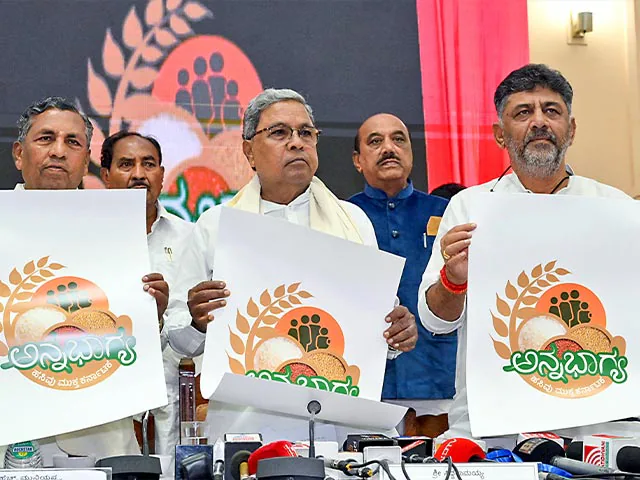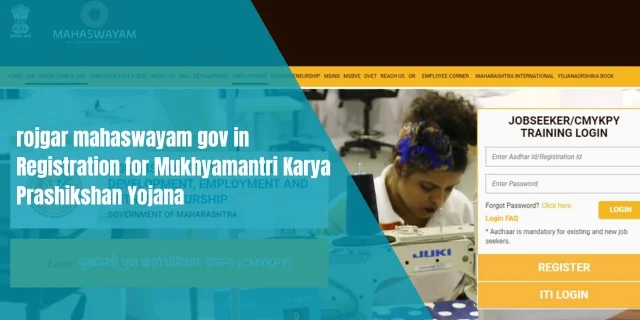Can A Government Employee Invest In The Share Market?

The allure of the stock market attracts individuals from various backgrounds looking to grow their wealth. For government employees in India, however, the rules and restrictions around stock market investments are tightly regulated. Understanding what is permissible and what isn’t is crucial for any government employee interested in exploring investment opportunities without contravening established guidelines.
Also Read: Can People Above 65 Buy Health Insurance? (Updated)
Contents
- 1 Difference Between Trading and Investing
- 2 Restrictions on Government Employees
- 3 Where Should a Government Employee Avoid Investing?
- 4 What Are the Rules on Stock Market Investment Disclosure for Government Employees?
- 5 Which Are the Best Investment Options for Government Employees?
- 6 How Can Government Employees Open a Demat Account?
- 6.0.1 Step 1: Choose a Depository Participant (DP)
- 6.0.2 Step 2: Fill Out the Account Opening Form
- 6.0.3 Step 3: Submit Required Documents
- 6.0.4 Step 4: Accelerated Process with Certain DPs
- 6.0.5 Step 5: Receive a Unique Demat Account Number
- 6.0.6 Step 6: Link the Demat Account with the Salary Account
- 6.0.7 Step 7: Compliance with Investment Rules and Regulations
- 7 Can IAS Invest in the Share Market?
- 8 Can Government Employees Invest in IPOs?
- 9 Are Government Employees Eligible to Buy Promoter’s Stocks?
- 10 Why So Many Restrictions on Government Employees?
Difference Between Trading and Investing
The first step in understanding the stock market for government employees is distinguishing between trading and investing. Trading involves buying and selling stocks over a short period, primarily aiming for quick profits based on market fluctuations. This practice is highly speculative and involves a significant amount of risk. Investing, on the other hand, is more about building wealth gradually. It involves purchasing stocks or other securities to hold them for a longer period, typically years, based on the fundamental performance of the company and future growth prospects.
Restrictions on Government Employees
Government employees are bound by specific regulations that limit their activities in the stock market to prevent conflicts of interest and ensure that their primary focus remains on their duties. According to the Central Civil Services (Conduct) Rules, speculative trading is strictly prohibited. This includes any form of frequent buying and selling of stocks, options, futures, or engaging in intraday trading.
Also Read:
- How to Create a Will Online? (Follow These Simple Steps)
- Hyderabad-based Startup Dhruva Space Bags $9 Million from IAN Alpha Fund
Where Should a Government Employee Avoid Investing?
Under the Central Civil Service (Conduct) Rules, government employees must avoid investments that could lead to a conflict of interest or negatively impact their professional responsibilities. For instance, investing in stocks from quotas reserved for directors or heavily involved in price determination processes in IPOs or public offerings by a Central Public Sector organization is prohibited.
What Are the Rules on Stock Market Investment Disclosure for Government Employees?
In 2019, the disclosure rules were updated to require that all transactions in shares, mutual funds, debentures, or securities that exceed six months of an employee’s basic pay within a calendar year must be reported. This transparency is intended to prevent abuses of insider information and ensure that investments do not interfere with official duties.
Which Are the Best Investment Options for Government Employees?
Given the restrictions, government employees should consider long-term, lower-risk investment options. These include:
- Mutual Funds: Diversified investment that spreads out risk.
- Public Provident Fund (PPF): Offers tax benefits with stable returns.
- National Pension Scheme (NPS): Helps in building a retirement corpus.
- Long-term Stock Investments: Focus on stocks that are held for more than a year.
- Fixed Deposits and Bonds: Provide stable and guaranteed returns.
How Can Government Employees Open a Demat Account?
Opening a Demat account is a crucial step for government employees in India who wish to invest in the stock market. The process is streamlined to ensure compliance with the regulations that govern their investments. Here is a detailed guide on how government employees can open a Demat account:
Step 1: Choose a Depository Participant (DP)
The first step in opening a Demat account is to select a Depository Participant. DPs are intermediaries between the depository and the investor and can be banks, stockbrokers, or online investment platforms that are registered with either of the two depositories in India — National Securities Depository Limited (NSDL) or Central Depository Services Limited (CDSL). It’s essential to choose a DP that offers robust customer support, reasonable fees, and an easy-to-use platform. Comparing different DPs based on these factors can help in making an informed decision.
Step 2: Fill Out the Account Opening Form
After selecting a DP, the next step involves filling out the Demat account opening form. This form requires details such as name, address, contact information, PAN number, bank account details, and nominee information (if applicable). It’s important to fill out the form accurately to avoid any issues in the future.
Step 3: Submit Required Documents
The account opening process also involves submitting several key documents to verify identity and address. These typically include:
- PAN Card: Mandatory for all financial transactions and serves as proof of identity.
- Aadhaar Card: Used for both identity and address verification.
- Proof of Address: This could be a utility bill, bank statement, or any other government-issued document that matches the address provided in the form.
- Passport-sized Photographs: Generally, a couple of recent photographs are required.
These documents can usually be submitted in person or online, depending on the facilities provided by the DP.
Step 4: Accelerated Process with Certain DPs
Some DPs like Fisdom offer an expedited account opening and KYC process. These platforms enable online document submission and verification, significantly reducing the time needed to open a Demat account. If quick access to the market is a priority, opting for such DPs might be advantageous.
Step 5: Receive a Unique Demat Account Number
Once the documents are verified and processed, the DP will issue a unique Demat account number to the investor. This number is essential for all transactions related to the buying and selling of securities and must be quoted in all related communications.
Step 6: Link the Demat Account with the Salary Account
Linking the Demat account with a salary account can facilitate seamless transactions. This setup allows for the easy transfer of funds into the Demat account whenever securities are purchased, and likewise, receipts from the sales of securities can be credited directly to the salary account.
Step 7: Compliance with Investment Rules and Regulations
Finally, government employees must ensure that they comply with all rules and regulations about their investments. This includes adhering to any restrictions on speculative trading and disclosing transactions as required by their employment terms or central government rules.
By following these steps, government employees can successfully set up a Demat account, ensuring they have the necessary tools to begin investing in the stock market while remaining compliant with all relevant regulations
IAS officers, like other government employees, can invest in the stock market provided they adhere to the same rules of long-term, non-speculative investments. They are prohibited from engaging in any form of trading or investments that might conflict with their duties or leverage insider information.
Can Government Employees Invest in IPOs?
Yes, government employees can invest in Initial Public Offerings (IPOs), but they must not be involved in the price-fixing process of the IPO, nor should any of their relatives be involved in such processes.
Are Government Employees Eligible to Buy Promoter’s Stocks?
Government employees are generally prohibited from buying stocks offered exclusively to company directors or from quotas that could lead to a potential conflict of interest or affect their impartiality and duty.
Why So Many Restrictions on Government Employees?
The stringent rules governing the investment activities of government employees are designed to maintain trust and integrity within the public service. They ensure that government employees remain focused on their duties without the distractions or potential conflicts that high-risk financial activities could entail. These regulations also prevent the misuse of insider information and uphold the professional standards expected from public servants.
In conclusion, while government employees in India do face numerous restrictions in stock market investments, understanding and navigating these rules can lead to fruitful investment opportunities that enhance financial security without compromising their roles and responsibilities





